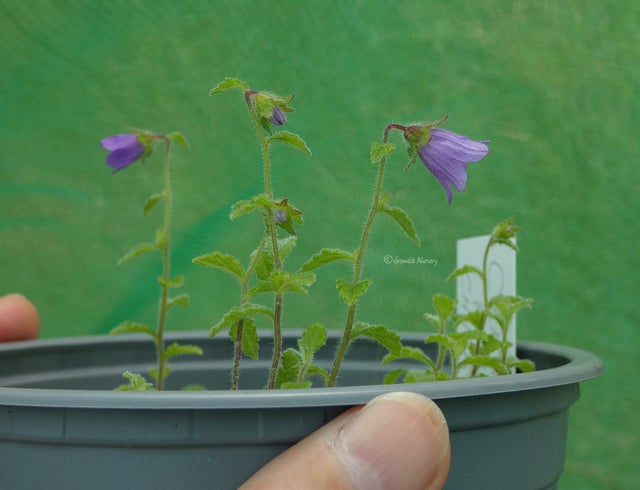Campanula pallida
We don't often say this but ... please only purchase if you are an experienced grower! Seeds are very limited and scarce and we want these seeds in the right hands!
30 very tiny, dust-like seeds per packet.
The seeds we offer have been harvested from plants grown by us from seeds generously given to us by a friend who collected them in Sichuan, China and, as far as we are aware, this species is not in cultivation - but with a flower so minuscule why would it be? You'd have to be a bit of a collecting nerd to want to grow it! We can't emphasise how important it is to share plant material that is rare in cultivation with fellow plant friends. Don't be like the art collectors sitting in their opulent apartments hoarding beauty from public view!
A dwarf perennial species with pubescent stems, leaves with toothed margins and tiny, blue-purple, bell-shaped flowers from summer into autumn. Height 15 to 50 cm. Sun to part shade in well-drained, moisture retentive soil.
GROWING INSTRUCTIONS:
Sow from March to June. Surface sow small seeds thinly, press in gently and keep top of pot moist. Keep pot warm at 15 to 20°C until germination, then move to somewhere cooler.
Carefully prick out seedlings when they have developed true leaves and are large enough to transplant to individual pots to grow on.
